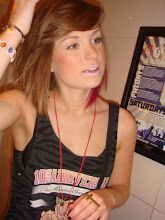- Used in film theory - 1970's
- Refers to the way viewers look at images of people in visual medium
- 'The Male Gaze' - feminist reference to the voyeuristic (for pleasure) way in which men look at women
- Jonathan Schroeder (1998) - 'to gaze implies more than to look at' - psychological relationship of power - 'gazer is superior to the object of the gaze'
- spectators gaze
- intra-diegetic-people looking at each other within the media text
- direct address to the viewer
- look of the camera
- gaze of a bystander
- gaze of an audience within a text
Attention directed:
- towards others
- towards an object
- to oneself
- to the reader/camera
- into middle distance
- 'Visual pleasure and narrative cinema' 1975
- Doesn't consider men looking at men or women looking at women in admiration
- Failure to account for female spectator (women looking at men)
- Only a heterosexual view (homosexual-men looking at men)
Women:
- Chocolate box-half/full smile, hardly any/no teeth on show
- Invitational-emphasis on eyes, looking at camera, head to one side, hint of a smile
- Super-smiler-cheesey grin
- Romantic/sexual-pouting
- Carefree-small smile, relaxed (sport, health)
- Pratical-concentration (handyman)
- Seductive-pout, broody
- Comic-smiley, foolish, exaggerated
- Catalogue-looking in distance, vacant

No comments:
Post a Comment